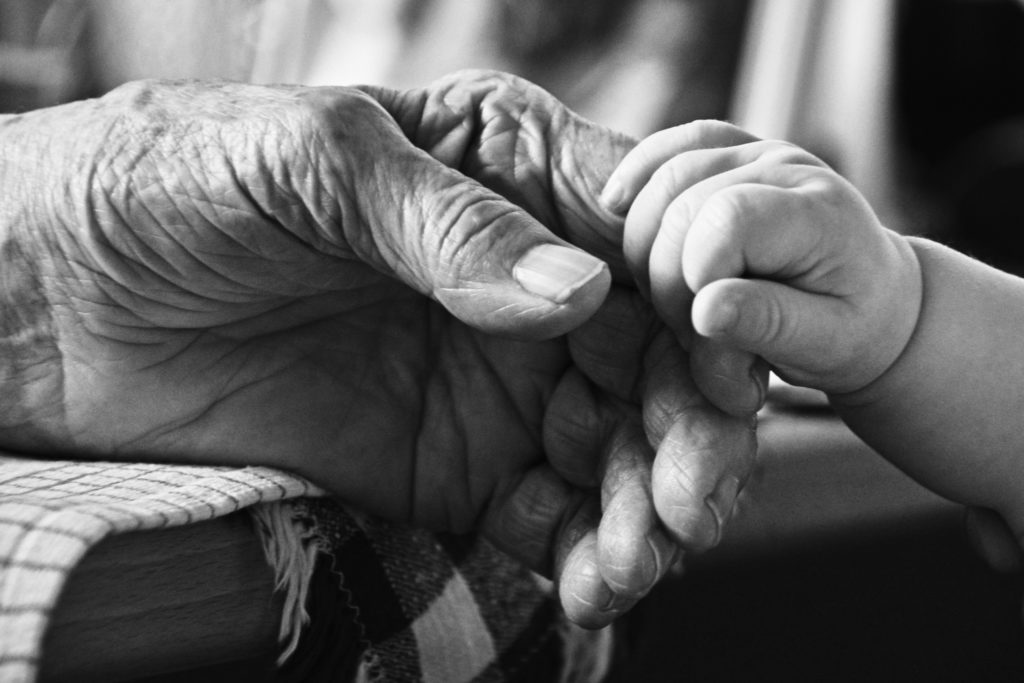New research explores the nature of the relationship between parents’ adverse childhood experiences (ACEs) and their children’s health. Findings from a study by Félice Lê-Scherban, Xi Wang, Kathryn Boyle-Steed, Lee Pachter, published in Pediatrics, indicate that overall poor health status, asthma, and excessive television watching in children could be predicted by parent ACEs. Lê-Scherban and team’s work suggests that childhood adversity may have a long-term impact on family health across multiple generations.

While many of health factors in children were not associated with parent ACEs, the results add to a growing body of research linking multiple or traumatic ACEs to future mortality, morbidity, and health behaviors. The study points to novel, previously unknown connections between the number of a parent’s ACEs and child health characteristics.
The authors write that ACEs may “affect children through behavioral mechanisms, such as by leading to increased exposure to tobacco or other substances or by affecting health care use. ACEs are robustly linked to adult mental health disorders such as depression, which are, in turn, associated with impaired parenting. ACEs have also been explicitly linked with dysfunctional parent-child interactions and with parenting attitudes and behaviors. Finally, parent ACEs may contribute to unsafe living conditions, such as food insecurity, as well as higher risk of ACEs among the children themselves.”
Previous research has documented that abuse, neglect, exposure to substance use, the incarceration of a close relative or caregiver, and community violence in childhood may have a lasting impact on one’s developmental trajectory, health, and emotional experience. Further, the effects of trauma may carry over to the children and grandchildren of those directly impacted.
Screening for ACEs in the absence of sufficient supports in place to provide children in the advent of their detection can be very harmful. However, when ACEs are appropriately identified, early interventions may reduce adverse long-term outcomes. Understanding health risks associated with parent ACEs may serve to facilitate better preventative/responsive care to children at risk for health/emotional risks, including those associated with parent ACEs.
Lê-Scherban and colleagues analyzed preexisting survey data representing a diverse sample of parent-child dyads (N = 350) in an urban setting to assess the intergenerational impact of ACEs. Most of the adult participants (80% female, 45% non-Hispanic African American, 39% non-Hispanic white, and 10% Hispanic and Latino) had been exposed to at least one ACE included in the Philadelphia ACE Questionnaire, the measure selected to reflect parent exposure to ACEs.
The survey divided ACEs into conventional (family-based) and community-based childhood stressors. Child health outcomes were evaluated according to parent report included poor overall health status, asthma diagnosis, obesity, low fruit and vegetable consumption, any soda consumption, inadequate physical activity, excessive television watching, no health insurance, no usual source of health care, and no dental examination in past 12 months. Indicators of health status were reported on either binary or Likert-type scales.
Results from logistic regression analyses indicated that parent ACEs were predictive of general health, asthma diagnoses, and TV-watching habits, but were not found to be associated with child eating habits, physical activity, or access to healthcare. In essence, parent ACEs may elevate the risk of specific health concerns in childhood, but do not uniquely contribute to their occurrence. Future research designed to uncover mechanisms underlying these patterns is needed.
“Our results suggest that the full scope of health effects of ACEs is not limited to the exposed individual,” the authors add. “The lasting effects of childhood adversity are well known, and with our study, we extend these effects intergenerationally, at least in our high-risk urban sample.”
The authors caution against the interpretation that parent ACEs prevent children from reaching social, emotional, or physiological milestones. Instead, they recommend careful consideration of supports for those grappling with the continued impact of ACEs.
****
Lê-Scherban, F., Wang, X., Boyle-Steed, K. H., & Pachter, L. M. (2018). Intergenerational Associations of Parent Adverse Childhood Experiences and Child Health Outcomes. Pediatrics, 141(6). (Link)















It’s no surprise that parents with high ACE scores struggle to raise their own children. When the children do not remain in their natural home, that adds more trauma to the already traumatized parents. And I have yet to see an example where the removed children were substantially better off. Mine weren’t. Their adoptive home ended up in multiple years long child abuse investigations and both girls have documented their horrors in writing and verbally. As a result, instead of celebrating their happy adoptive lives, my husband and I have spent thousands upon thousands of dollars since reunion unsussccefully attempting to help them get their lives back on track as chaotic young adults. A little investment in their natural mother would have gone a lot further but we don’t actually help young impoverished and often traumatized mothers in this country, we shame them.
And it isn’t just parenting skills at stake here. There’s evidence of epigenetic changes after trauma that are passed to the offspring affecting their future health as well.
Report comment
Basically, I’m not surprised to find that parents with high AAE scores struggle.
Not so concerned about the altered genes as I would think altered circumstances might alter them again, if for the better, for the better.
Report comment
I find the field of epigenetics fascinating. I’m not one to claim that genetics cause mental distress, or any of the labels in the DSM. But whether or not epigenetic changes make future generations more susceptible to disease is still an interesting topic for discussion and I’d like to see more research on it.
Report comment
I don’t doubt it, and I’m sure that much more epigenetic research is on the horizon.
I just wanted to point out that much of this ACE (Adverse Childhood Experience) testing is about trying to explain why you’ve got AAE (Adverse Adult Experience). That AAE might start as ACE, well, why wouldn’t it? If people are going to explain their present misfortunes by reference to their former misfortunes, what isn’t changing is their fortunes.
Report comment
High ACE scores correlate with all kinds of poor outcomes in adulthood. Adverse childhood events and intergenerational trauma are real problems in society. And the human services/child welfare programs don’t usually make the situation better. None of my clients who have been through the foster care system came out without further trauma. You are right that we need to support parents rather than take away their kids, except in the most worst case scenarios of abuse and neglect. Being a parent is hard work under the best of circumstances, and a parent who has been through their own trauma is carrying wounds that do impact how they interact with all people. We need to support all trauma survivors and provide the tools necessary to help them heal and be directly involved in their children’s lives.
My own mother, for instance, grew up in a household with a cold mother and under-involved father. She ended up with an autoimmune disease, feelings of low-self esteem and self-worth, and co-dependency in toxic relationships (my father was addicted to alcohol and died at age 51 due to complications from his drinking and poor diabetes management). Her ACE score is 4. I believe these childhood experiences heavily influenced her life choices in relationships and negatively impacted her health and view of herself. Inevitably our parents impact us, and at least lucky for me my mother tried to show my brother and I love and concern, which is the opposite of what she got as a child. Unfortunately, my father was drunk most nights when I was a teenager and often had bad seizures in the mornings because his blood sugars were low, so I also have those wounds to heal from. And I myself struggle at times with over consuming alcohol. I hope I don’t repeat the cycles of my family, but certainly this is a possibility. That is scary. Good luck to you, Kindredspirit.
Report comment
And we need to remember that today’s children are tomorrow’s parents. Foster care is awful, but so is growing up with abusive parents and feeling like nobody cares. Whether they are in care or not, we need to reach out as a society and show kids that we care about them, ALL kids, and help them make it better for their own offspring. A challenging job, to say the least!
Report comment
Right on!
Report comment
I find it odd that it’s now all the rage for the bio-bio-bio, DSM believing, “mental health professionals,” to now be discussing child abuse and ACEs. When in reality, today’s DSM utilizing “mental health professionals” can NOT bill ANY insurance company for helping ANY child abuse victims EVER, unless you first misdiagnose the child abuse victims with one or more of the billable DSM disorders. Because child abuse is listed in the DSM as a “V Code,” and the “V Codes” are NOT insurance billable disorders. Meaning actually helping child abuse victims is NOT something today’s “mental health professionals” may get reimbursed, by health insurance companies, for doing – to this day.
https://www.psychologytoday.com/us/blog/your-child-does-not-have-bipolar-disorder/201402/dsm-5-and-child-neglect-and-abuse-1
And this DSM billing code “bible” flaw, has resulted in millions of child abuse victims being misdiagnosed with the billable DSM disorders, by those of you still utilizing the fatally flawed DSM. Today, over 80% of those labeled as “depressed,” “anxious,” “bipolar” or “schizophrenic” are actually misdiagnosed child abuse victims. Over 90% of those labeled as “borderline” are misdiagnosed child abuse victims.
https://www.madinamerica.com/2016/04/heal-for-life/
Are we really supposed to believe that people, who have been misdiagnosing child abuse victims with the scientifically invalid DSM disorders on a massive scale for decades, who then poisoned these child abuse victims with the psychiatric drugs. Now, all of a sudden, these same “mental health professionals” want to actually help child abuse victims? Really?
I think you “mental health professionals” should either make it legal, and insurance billable, for you to actually help child abuse victims. Or you should get out of the business of pretending you want to help child abuse victims. When all you really want to do is misdiagnose child abuse victims with your make believe DSM disorders, and poison them with your neurotoxic psychiatric drugs. And your neurotoxic drugs do NOT help child abuse victims, because child abuse victims are crime victims, NOT brain diseased people.
And trust me, I know drugging child abuse victims is the goal of today’s “mental health professionals.” Because drugging up my child is exactly what my psychiatrist wanted to do, when he learned the medical evidence of the abuse of my child had been handed over. Drugging up my child was exactly what the school social worker wanted to do, once my child largely healed from the abuse, and went from remedial reading in 1st grade, to getting 100% on his state standardized tests in eighth grade. I had to work very hard to protect my precious child from all sorts of way too intrusive, highly delusional, child abuse covering up and profiteering “mental health professionals.”
Report comment
This kind of research provides some good information, but it always feels like it’s making things SO complex! Fucking with parents fucks with their kids, who then grow up to be parents, and so on. The cycle of abuse – not really new news, and the disturbing part is that researchers have to actually point this out to clinicians when it should be so obvious. I think we have the “biological model” to thank for removing our attention from the obvious fact that treating children well is the key to improving our society at every level.
Report comment
I agree; the “medical model” of mental distress (the Disease Model) describes the obvious problem of a “cycle of abuse” as instead “evidence” of problematic family genetics!
Report comment